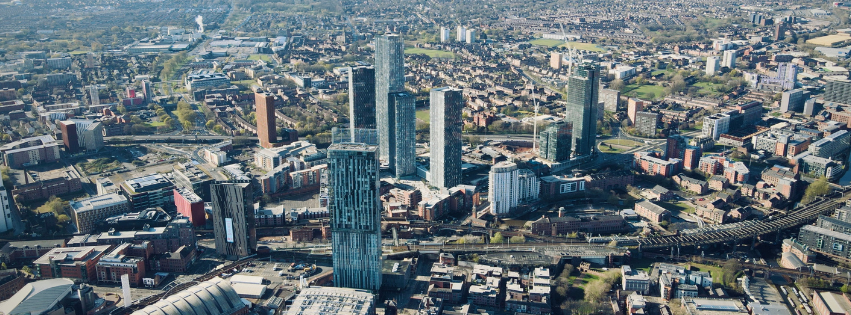Launch of the Trafford Faith Action Network
- Sep 26, 2024
- 3 min read
On Thursday, our Chief Exec was invited to speak at the launch of the new Trafford Faith Action Network on the work of Greater Together Manchester in working with communities to bring about positive change, particularly in relation to promoting health and wellbeing.
The meeting, organised by Dr Eve Parker (Councillor for Sale Central), was attended by Trafford Councillors, officers, as well as faith leaders and charities from across Trafford.
Our Chief Exec used the opportunity to highlight the amazing work done by faith groups across Trafford, and the need to resource and invest properly in the services they offer.
Here is an excerpt from what she said:
Whilst we often think of faith communities as being focused on a personal or collective spiritual wellbeing, the influence and ability of faith groups extends far beyond this.
In many of our communities (particularly those with higher levels of deprivation) faith buildings are some of the last community spaces and so many faith groups are ideally positioned in the local community to provide essential practical support and services.
This practical support can range from emergency provision including projects that distribute food, essential household items, clothing and hygiene products. However, in more recent years we have seen faith communities leading the way in providing good quality, accessible and sustainable long-term interventions.
In my experience, faith communities also play a vital role in building community resilience. They offer spaces for local people to connect with one another and build support networks. Faith communities also play a role in advocacy, whether that is advocacy for individuals or for their community as a whole. They can support individuals to navigate complex health and social care systems, but can also raise awareness about health and wellbeing concerns affecting their wider community and advocate for better policies.
However, faith communities cannot and should not undertake this work in isolation. Effective partnership working is essential. Faith communities need to work together with other voluntary sector groups but also with statutory and public services. We need to create spaces and networks that allow us to build trust between faith groups, charities, communities and public services, and this will allow us to have a much greater impact and find new innovative ways to promote health and wellbeing in our communities.
Many faith communities rely on volunteers for their delivery but it is worth noting that the number of people actively volunteering in the UK has dropped dramatically post-pandemic and hasn’t recovered in the same way that many other areas of life have. This reminds us that volunteers are not free labour, they require coordination, training, investment and support, just the same as paid staff. Volunteers can play an absolutely vital role in support people’s wellbeing but we need to make sure we invest in them too.
My final point is about the need to properly invest and resource in faith communities and the services they offer– times are hard for everyone working in the voluntary and community sector, but particularly for groups working in this space. Proper long-term investment, both in the buildings and the services, is essential for the faith communities to continue to have a positive impact on health and wellbeing.
GTM offers a range of support for churches in creating and developing projects that help to address poverty and disadvantage in their communities. We also support churches to engage with networks like the Trafford Faith Action Network, where they can have a voice in spaces where local policies are made, and help influence decisions that create a more just society. This area of GTM's work is kindly funded by the Benefact Trust.





